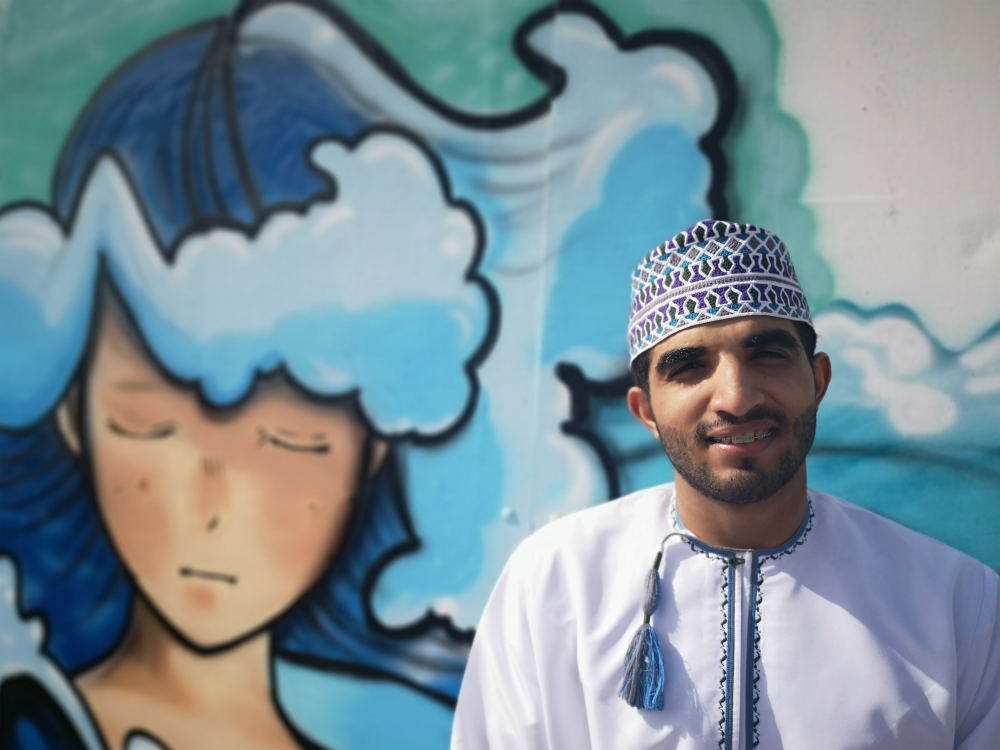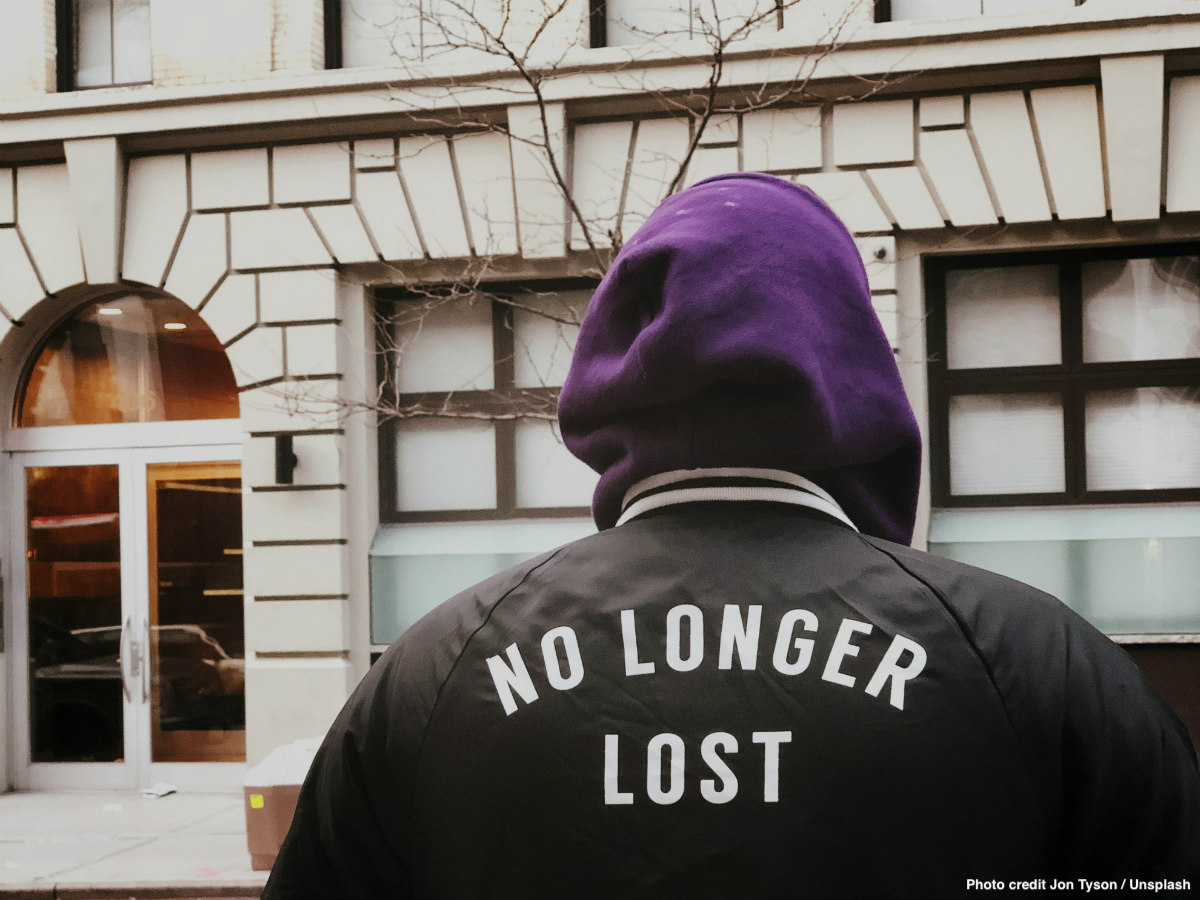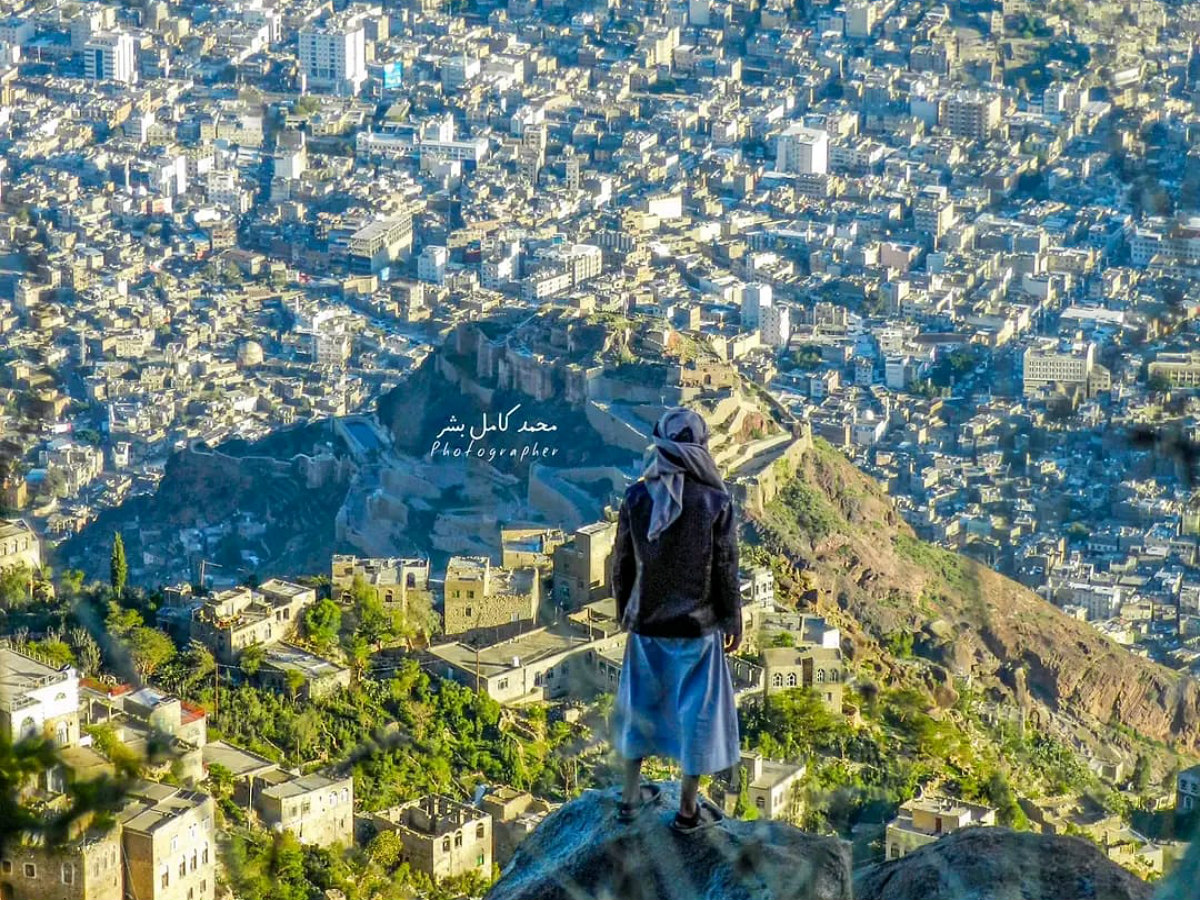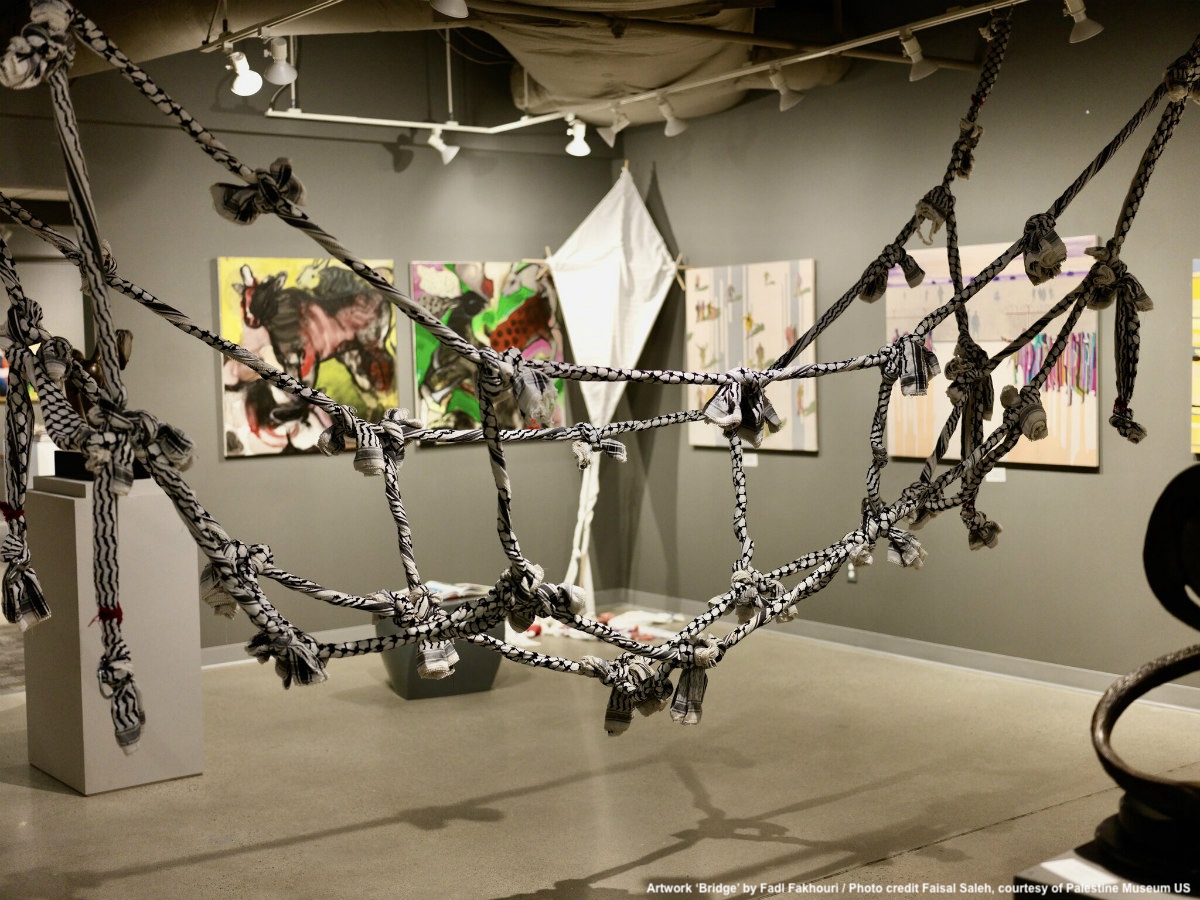Abdulmalik Sultan Al Maskari, one of Oman’s most recognisable graffiti artist, has been finding legal ways to pursue his passion for street art, which has always been prohibited in public spaces in Muscat. By painting in legal spaces like old busses and old houses he and other street artists are slowly unleashing the street art culture to the public and spearheading a cultural transition in Muscat.
‘The process has been very slow’, explains Al Maskari. ‘At the beginning other artists and I struggled a lot because we were hitting cultural walls’. Muscat city was indeed a desert devoid of graffiti or any representation with bright colours in public spaces. In traditional Islamic art figures and representations of human and animal forms were inexistent in favour of calligraphic design.
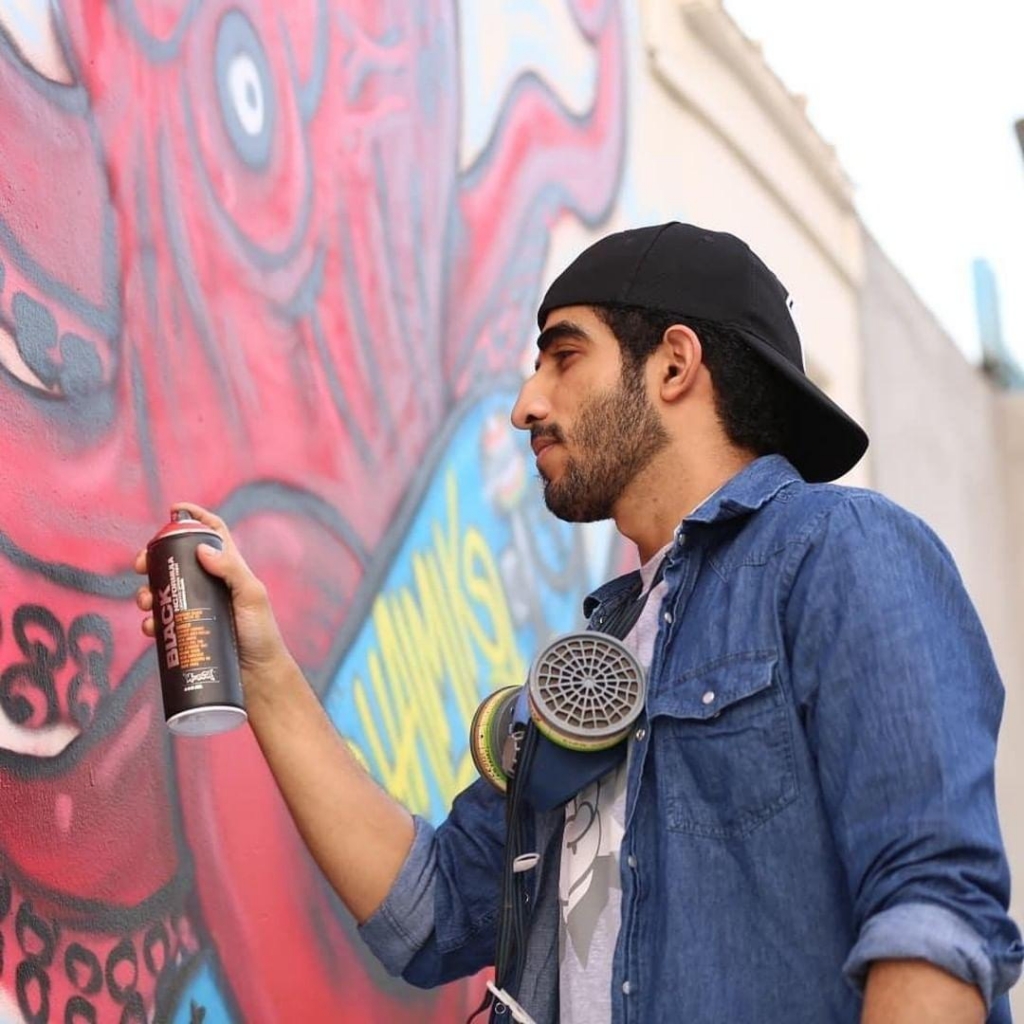
Inspired by other cities and graffiti artists, Al Maskari decided to start drawing in a different way than what people were used to see, in his own style, as he puts it. He didn’t receive much support from his inner circle. He had studied Engineering and was supposed to be doing something else. He opened a bookstore and painted it to attract customers. The neighbour shops liked the style of his paintings and the owners started asking him to do the same with their shops.
First came the small shops. Then came bigger customers like the newly-opened hotel chain W in Muscat. There, Al Maskari is painting the interior as a parallel story of two very different cities, New York and Muscat.
By painting murals with his fellow graffitists and sharing photos on social media they were not only spreading their work among citizens but ultimately changing the city’s mindset towards street art culture.
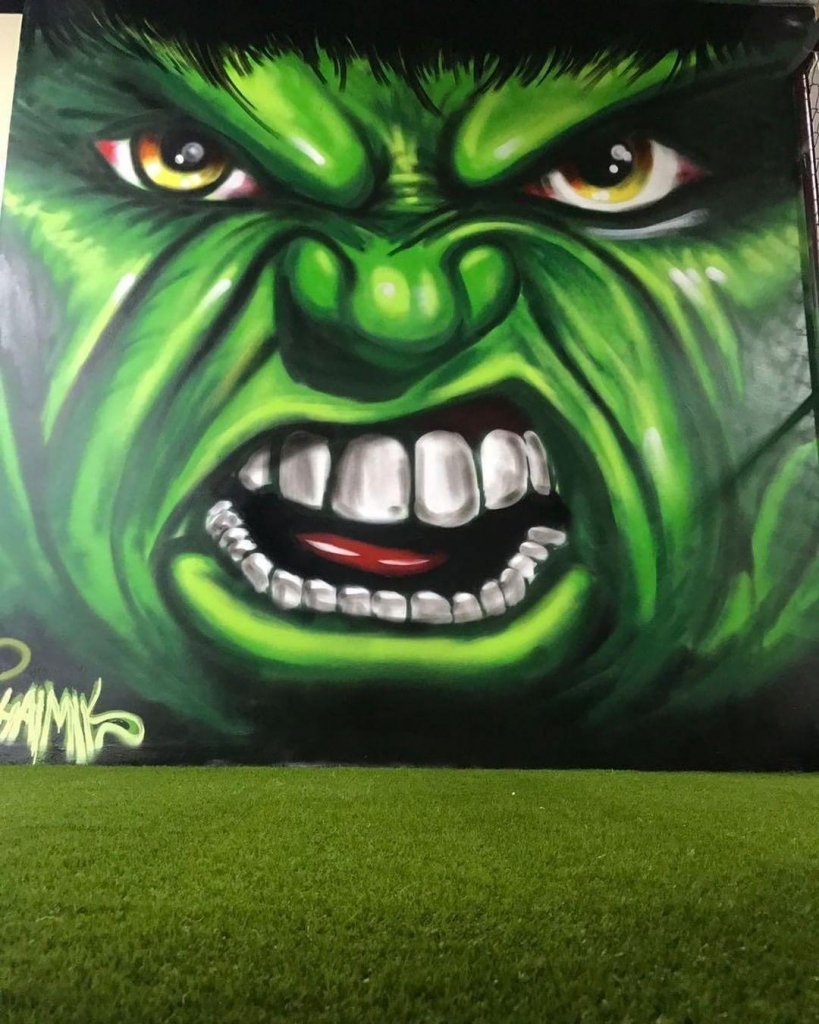
They also participate in all kind of events to expose people to street art. During the Ramadan last year the Sultan Qaboos University started a graffiti competition organized by Oman TV. ‘We all have to be really creative when they want us to paint outdoors without using walls’ laugh Al Maskari.
Step by step Omani street artists are getting the government on their side as their perception of graffiti is moving from vandalism to art. Their efforts are starting to pay off. ‘Now the city government is more interested in street art culture and they are trying to make walls available’ says Malik Al Maskari.
‘When we get permission to spray outdoors, there is always a message in the murals. I personally put more deep thinking into it. I predominantly use quiet colours like different kind of blues because I want the public to relax instead of adding stress to something new’, explains Al Maskari.
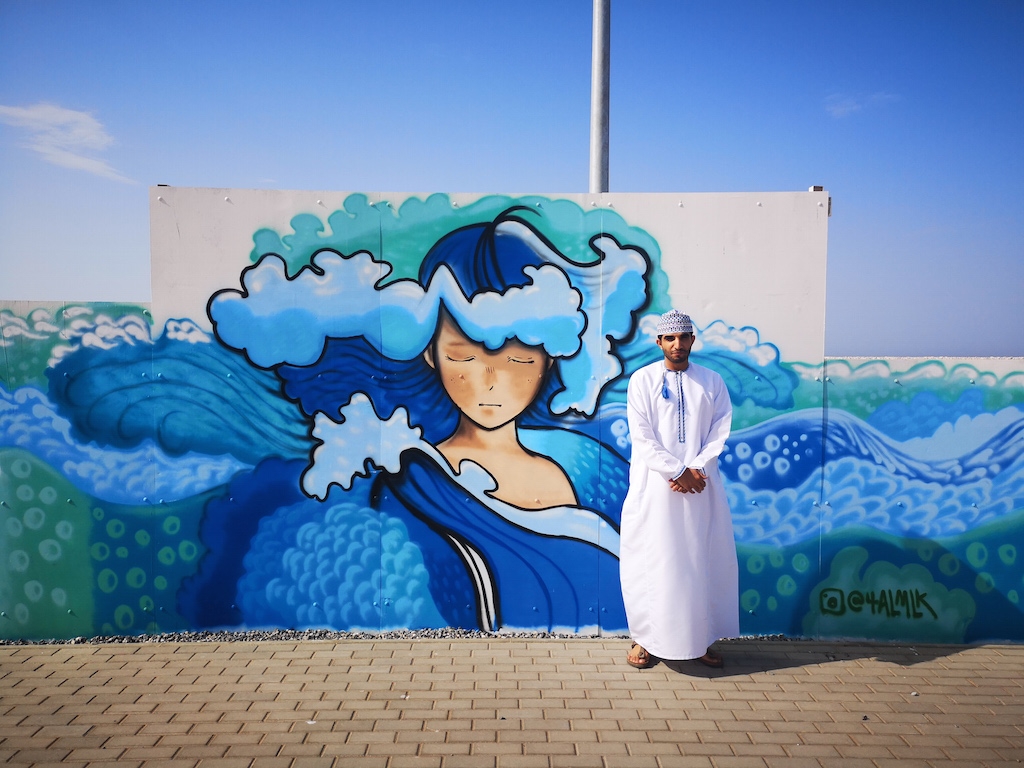
Muscat city is formed by dispersed areas with large infrastructure like bridges and flyovers to connect the different neighbourhoods. Isolated urban spaces in between areas are a big potential to be artistically intervened. In a city where the first Opera house in the Gulf Region was built, Muscat is deemed a forerunner to continue to make space for new cultural expression in the city.
Good cities are not only the result of high-quality urban infrastructure and good urban planning. Cultivating creativity among citizens is key for its vitality, to inspire them and drive social change.
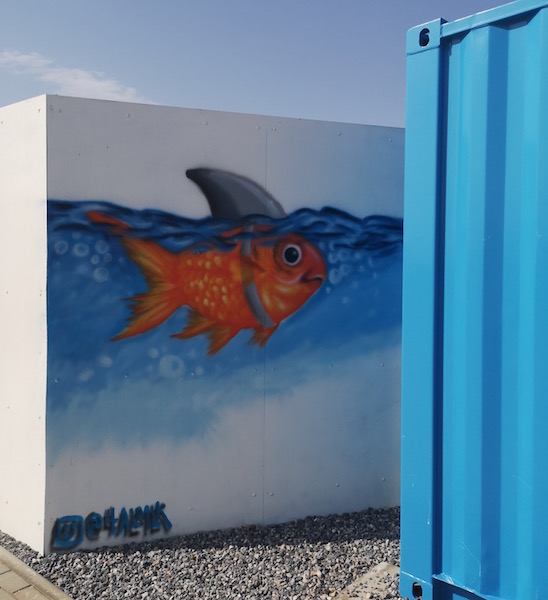
It is even more thrilling when these cultural and art expressions are mixed with the traditional cultural forces redefining a new concept of modernity in the Middle East.
Youngsters were raised in Muscat with a limited offer of museums, theatres and cinemas and there was always a sense of missing places for culture. But street art is not confined to galleries and museums; it can be displayed everywhere on the streets and it reaches a big crowd.
Art also tends to make people question conventions and street art, in particular, it is a powerful tool in provoking an engagement of citizens with their urban environment as it is an expression of taking ownership of the city.
In Muscat graffiti doesn’t have a real political agenda, as it is sometimes the case in some countries after the Arab spring. Murals by Omani street artists are rather projecting dreams and aspirations, but all within the law, which they are slowly but surely driving for change towards a more democratic city.
